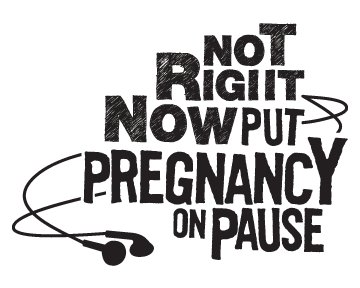 It's going to happen. Whether your child is two or 22, they're going to make mistakes. It doesn't mean that you're a bad parent or that your child is a bad kid.
It's going to happen. Whether your child is two or 22, they're going to make mistakes. It doesn't mean that you're a bad parent or that your child is a bad kid.
The fact is, your child isn't going to know what they're allowed to do and what they're not unless you show them. You might be a young parent, but you're still a parent. Don't let other people make you afraid or ashamed to discipline your child in public. You're just doing what's best for your child.
Discipline without hitting
Sure, you might have gotten spanked when you were growing up, but it's important to try to find ways to discipline your child without hitting them. Give some of these tips a try until you find something that works for you!
- Set a good example. Children learn more by how parents act than by what they say.
- Praise children for what they do right.
- Let your child help you come up with family rules and consequences. They'll be less likely to break them that way and they'll know what to expect if they do!
- Sometimes it's best just to ignore bad behavior unless it's going to hurt your child or other people. Just make sure you let your child know if what they're doing is annoying to you or other adults.
- When your child does something wrong, make sure you discipline them right away. Small kids have short attention spans so they might not realize why they're being disciplined if you wait too long to do it.
- Help your child develop inner control. Remember that young children do not have the self-control needed to follow all the rules all the time, so don’t place temptation in their path.
- Let your child make some decisions about their lives. For example, you can let them pick what clothes they want to wear or what food to order in a restaurant.
- Take time to listen to their problems.
- Be flexible. Sometimes rules need to be changed when your child gets older. You wouldn't want the same rules as a teenager you had when you were five, right?
- Set consequences that won't hurt your child, but that your child doesn't like. For example, you can take away a favorite toy for a few days or cancel an activity they were looking forward to.
- Set a consequence that's related to what your child did wrong. For example, if your child doesn't pick up his toys when he's supposed to, take them away for a few hours or a few days, depending on your child's age.
- Give your child a choice. If your child is playing too roughly with other children, you could say, "You can either play nicely with them or go for ‘time-out.’ You decide."
- Give children responsibilities, like household chores. Having something important to do can help your child feel independent and good about themselves.
Time-out
Lot's of parents use “time-out” to help teach their children which behaviors are OK and which aren't. It's pretty simple. A time out just means that you're putting your child in a quiet, safe place where he can calm down and won't be getting into any more trouble. It also lets your child know whatever he was doing wasn't OK.
Make sure you explain what a time-out is before your child gets in any trouble. That way everyone is calm and know exactly what is going to happen if you ever need to use a time-out.
Things to remember when using time-out:
- Be consistent about when and why you use time-outs.
- Choose a time-out space where your child is separated, but that's safe and non-frightening. Try to use that same space every time you do a time-out.
- When time-out is over, let your child go back to playing. As soon as you can, try to notice something your child is doing right and let him know that makes you happy.